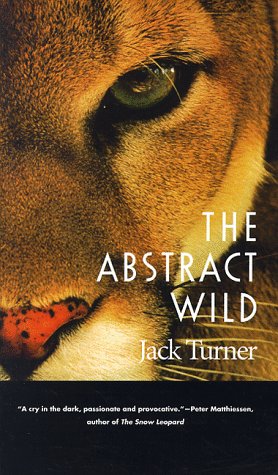I thought that the debate was pretty good, although I was disappointed to not really hear anything new from either candidate. Obama definitely got stuck on clearing up the facts, which is a bummer because it gave him less time to talk about new and exciting things, it sorta seemed like him and McCain were bickering a bit. Sadly, he wouldn't have to constantly explain things if McCain wasn't leading such a "uniquely misleading campaign" (media's words, not mine).
I thought in terms of body language, Obama was way better. The town hall format was supposed to favor McCain, who I thought looked awkward, tired, and withdrawn. Obama on the other hand leaned in, interacted with the audience, and seemed very engaged.
One of my problems with McCain and Palin is that they never actually ANSWER the questions. They wax philosophical and metaphorical about defeating evil and supporting the middle class, but without actually saying HOW. Obama (and Biden for that matter) on the other hand always address the question posed to them, usually in a concise, clear, and well-thought out manner.
I think Obama was the clear winner of this debate, although I definitely don't think he made undecideds love him.
Follow this link to read a non-partisan description of each candidates environmental plan and voting record.
Thursday, October 9, 2008
Monday, September 8, 2008
The Abstract Wild
 "Effective protests are grounded in a refusal to accept what is normal. We accept a diminished world as normal; we accept a diminished way of life as normal; we accept diminished human beings as normal. What was once considered pathological becomes statistically common and eventually "normal" - a move that often veils denial. Decayed teeth are statistically common, just like smog and environmentally caused cancers. That a statistically common decayed tooth is also an abnormal tooth, a pathological tooth, a diminished tooth, a painful, horrible tooth, is a fact we deny. Until it is our tooth. At present most of us do not experience the loss of the wild like we experience a toothache. That is the problem. The "normal" wilderness - wilderness most people know - is a charade of areas, zones, and management plans that is driving the real wild into oblivion. We deny this, accepting the semblance instead of demanding the real. This, too, is normal; modern culture is increasingly a culture of semblance and simulacra...
"Effective protests are grounded in a refusal to accept what is normal. We accept a diminished world as normal; we accept a diminished way of life as normal; we accept diminished human beings as normal. What was once considered pathological becomes statistically common and eventually "normal" - a move that often veils denial. Decayed teeth are statistically common, just like smog and environmentally caused cancers. That a statistically common decayed tooth is also an abnormal tooth, a pathological tooth, a diminished tooth, a painful, horrible tooth, is a fact we deny. Until it is our tooth. At present most of us do not experience the loss of the wild like we experience a toothache. That is the problem. The "normal" wilderness - wilderness most people know - is a charade of areas, zones, and management plans that is driving the real wild into oblivion. We deny this, accepting the semblance instead of demanding the real. This, too, is normal; modern culture is increasingly a culture of semblance and simulacra... ...The reduction of social criticism to private defect is incessant in our culture; it cripples our outrage and numbs our moral imagination. Convinced that it is really our problem, we are no longer astonished by evil and living nightmares no longer awaken us. We are put down, so we shut up, abandoning the prospect of autonomy, self-respect, and integrity. Signing more petitions, giving money, or joining another environmental organization helps some, but these things are too abstract to help us and our problem. These means are too far removed from the end, the intention unachieved. Indeed, our apathy and cowardice stem, in part, from this: these abstractions never work, they never achieve a sense of power and fulfillment. They correct neither the cause nor the effect. We end up feeling helpless, and since it is human nature to want to avoid feeling helpless, we become dissociated, cynical, and depressed.
Better to live in the presence of the wild - feel it, smell it, see it - and do something real that succeeds, like Gray Nabhan's preservation of wild seeds or Doug Peacock's intimacy with grizzlies. We know that in the end moral efficacy will manifest knowledge and love: our intimacies. We only value what we know and love, and we no longer know or love the wild. So instead we accept substitutes, imitations, semblances, and fakes - a diminished wild. We accept abstract information in place of personal experience and communication. This removes us from the true wild and severs our recognition of its value. Most people don't miss it and won't miss it in the future. Most people literally do not know what we are talking about.
To reverse this situation we must become so intimate with wild animals, with plants and places, that we answer to their destruction from the gut..."
an excerpt from The Abstract Wild: A Rant
by Jack Turner
Sunday, June 1, 2008
Honey Hitch
Since 2006 farmers across the U.S. have reported the disappearance of honeybees. Scientists, lacking a concrete explanation for this phenomenon (nearly one-third of all honeybee colonies in the country have vanished), have dubbed it Colony Collapse Disorder. Many blame the rampant use of pesticides for the poor health of this crucial species, but the verdict is not out yet.

Honeybees are responsible for pollinating nearly $15 billion (source) worth of crops in the United States alone. Fewer pollinators mean fewer crops (which translates into higher prices for those foods). Read more.
Honey Do List: Until the true cause of Colony Collapse Disorder is known, we can take these simple steps to help the honeybee along. Grow a large variety of native plants in your garden, and avoid using pesticides. Doing this will create a healthy environment for bees (and for your family)!

Honeybees are responsible for pollinating nearly $15 billion (source) worth of crops in the United States alone. Fewer pollinators mean fewer crops (which translates into higher prices for those foods). Read more.
Honey Do List: Until the true cause of Colony Collapse Disorder is known, we can take these simple steps to help the honeybee along. Grow a large variety of native plants in your garden, and avoid using pesticides. Doing this will create a healthy environment for bees (and for your family)!
Labels:
colony collapse disorder,
environment,
garden,
honey bee,
pesticide
Monday, May 12, 2008
Wildlife Corridors
Wildlife corridors are a crucial way in which we can protect species from changes in habitat associated with climate change. It is important to have preserves connected across geographically vast distances so that animals can migrate north-south as weather patterns and temperatures change. One example of such a project is the "Spine of the Continent" which would connect land from Alaska to northern Mexico. For more information click here. One major threat to the success of this project is, believe it or not, border patrol.  Connecting crucial jaguar habitat between Sonora, Mexico and the United States would be made nearly impossible by the construction of walls or fences on our borders. One way to help is to call your congressional representative and ask that they:
Connecting crucial jaguar habitat between Sonora, Mexico and the United States would be made nearly impossible by the construction of walls or fences on our borders. One way to help is to call your congressional representative and ask that they:
Support HR 2593, "the Borderlands Conservation and Security Act," which will, if passed, require full environmental assessment of all border security activities and protect critical international wildlife corridors.
Oppose HR 4987, the "Fence By Date Certain Act," which would, if passed, require the full, double-layered fencing of 700 miles of the U.S.-Mexico border no later than June, 2009.
 Connecting crucial jaguar habitat between Sonora, Mexico and the United States would be made nearly impossible by the construction of walls or fences on our borders. One way to help is to call your congressional representative and ask that they:
Connecting crucial jaguar habitat between Sonora, Mexico and the United States would be made nearly impossible by the construction of walls or fences on our borders. One way to help is to call your congressional representative and ask that they:Support HR 2593, "the Borderlands Conservation and Security Act," which will, if passed, require full environmental assessment of all border security activities and protect critical international wildlife corridors.
Oppose HR 4987, the "Fence By Date Certain Act," which would, if passed, require the full, double-layered fencing of 700 miles of the U.S.-Mexico border no later than June, 2009.
Tuesday, January 8, 2008
Three Presidential Candidates Discuss Global Warming
Presidential Candidates' Forum on Global Warming and Energy Security
At the end of 2007 all the presidential candidates were invited to participate in a forum on Global Warming and Energy Security. Edwards, Clinton, and Kucinich gave speeches and answered questions (REAL questions about climate change and energy). To hear what they had to say, check out the audio from Living on Earth.
At the end of 2007 all the presidential candidates were invited to participate in a forum on Global Warming and Energy Security. Edwards, Clinton, and Kucinich gave speeches and answered questions (REAL questions about climate change and energy). To hear what they had to say, check out the audio from Living on Earth.
"The torch has been passed to a new generation. We are the generation that we've been waiting for and we just need to move forward, with courage and compassion and with vision, to create the world that we want." JFK
Subscribe to:
Comments (Atom)
